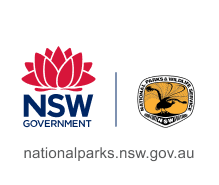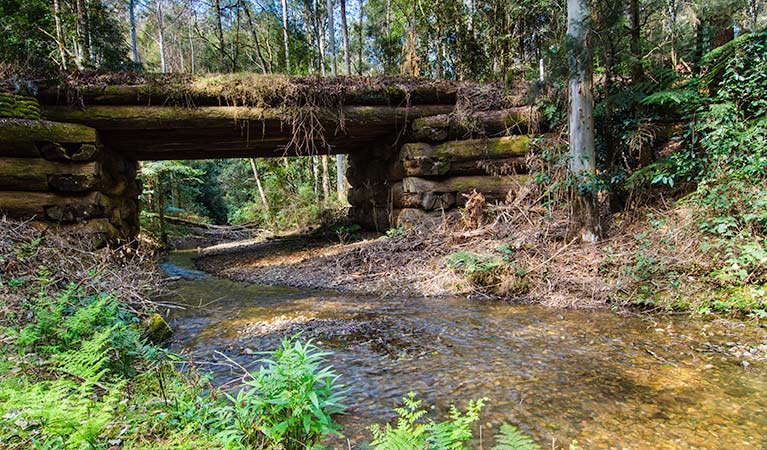Myrtle Scrub scenic drive
Cottan-Bimbang National Park
Overview
Myrtle Scrub scenic drive is a 14km alternative driving route to the highway straight through scenic views of Cottan-Bimbang National Park, tracing a trail past old-growth wet eucalypt forest and rainforest.
- Distance
- 14km one-way
- Time suggested
- 30min
- Grade
- Easy
- What to
bring - Hat, sunscreen
- Please note
- There is limited mobile reception in this park
- Remember to take your binoculars if you want to birdwatch
Because Cottan-Bimbang overlays Oxley Highway, it’s possible to get a sense of it without leaving the beaten path. But interested travellers and keen road-trippers will want to take advantage of an additional driving route that threads 14km through the deeper recesses of the park along an unsealed road.
Myrtle Scrub scenic drive, in the western section of Cottan-Bimbang, connects with the highway at either end and offers scenic views of old-growth wet eucalypt forest and rainforest. Take it at your own pace, watching out for lyrebirds or brush turkeys scurrying across the road. At night, you might even catch a glimpse of a bandicoot or potoroo.
Another good idea is to bring lunch and take advantage of the picnic spot next to Cells River, with its magnificent timber bridge – a relic of the former forestry management of the area. Cells State Conservation Area, in the centre of the park, is a great destination for people interested in traces of gold mining history. If you decide to go walking, be sure to plan ahead and bring a GPS.
Map
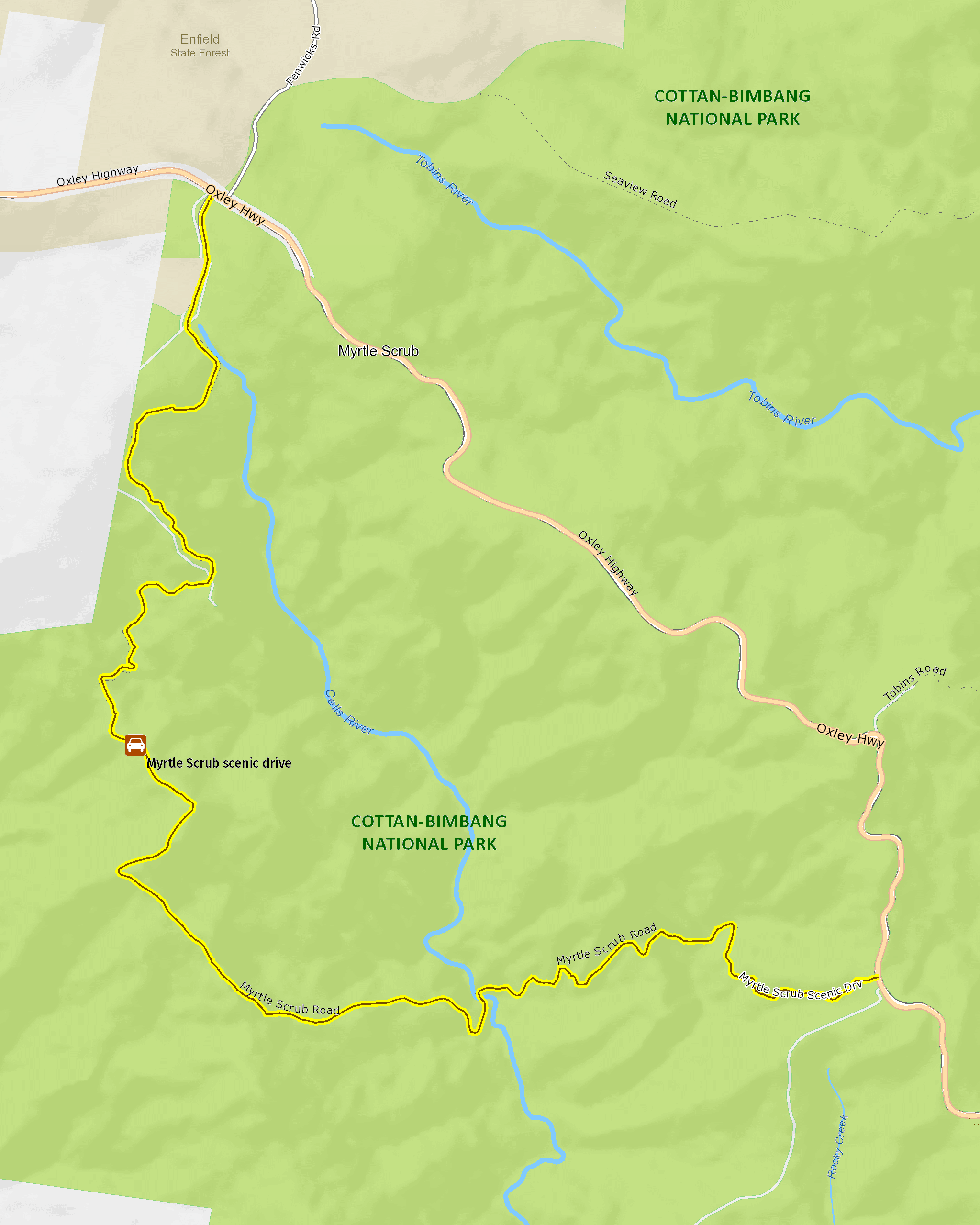
Map legend
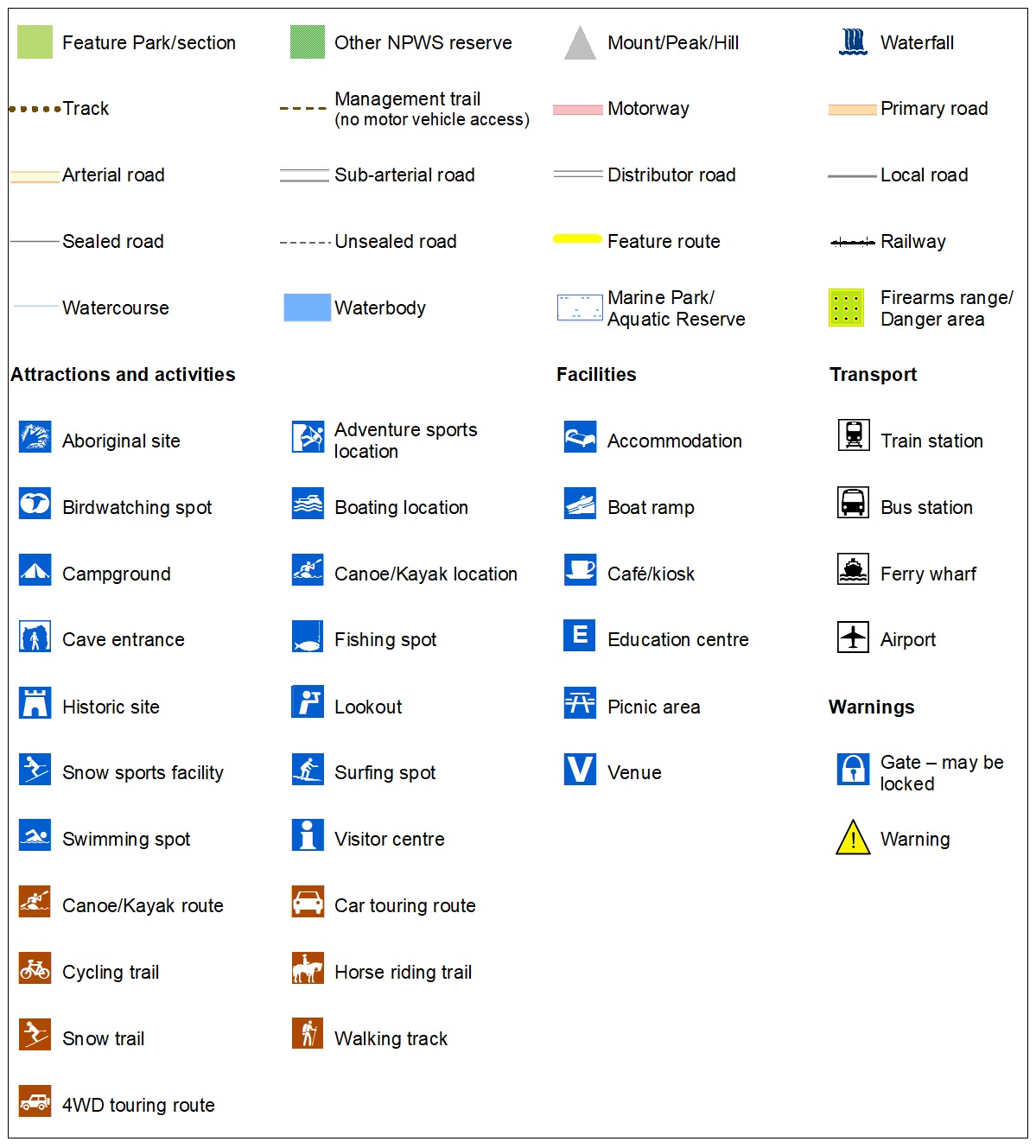
Local alerts
For the latest updates on fires, closures and other alerts in this area, see https://uat.nswparks.cloud/things-to-do/driving-routes/myrtle-scrub-scenic-drive/local-alerts
General enquiries
- National Parks Contact Centre
- 7am to 7pm daily
- 1300 072 757 (13000 PARKS) for the cost of a local call within Australia excluding mobiles
- parks.info@environment.nsw.gov.au
Park info
- in Cottan-Bimbang National Park in the North Coast and Country NSW regions
Cottan-Bimbang National Park is always open but may have to close at times due to poor weather or fire danger.
Visitor info
All the practical information you need to know about Myrtle Scrub scenic drive.
Maps and downloads
Learn more
Myrtle Scrub scenic drive is in Cottan-Bimbang National Park. Here are just some of the reasons why this park is special:
A potential World Heritage Area
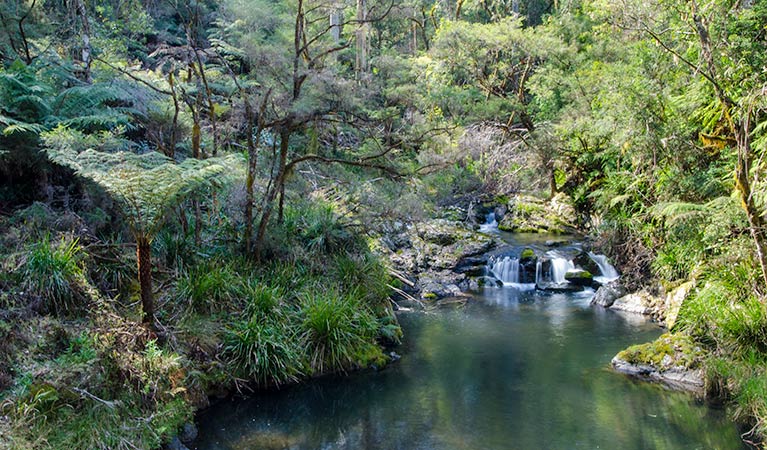
Rainforest makes up 40% of Cottan-Bimbang National Park, with subtropical rainforest in the centre around the catchment of Cells Creek, and warm temperate rainforest and dry rainforest of myrtle further out. Because of this diverse ecosystem, Cottan-Bimbang has been nominated for inclusion in the Gondwana Rainforest World Heritage Area.
Aboriginal tracks

The name 'Cottan-Bimbang' is an Aboriginal word meaning 'walking stick palm', referring to a plant which can be found scattered throughout the national park. Echoes of Aboriginal occupation can also be seen in the routes used by early explorers and settlers, which were probably first used by Aboriginal people to travel between the coast and tablelands.
Colonial settlers, gold, and bushrangers
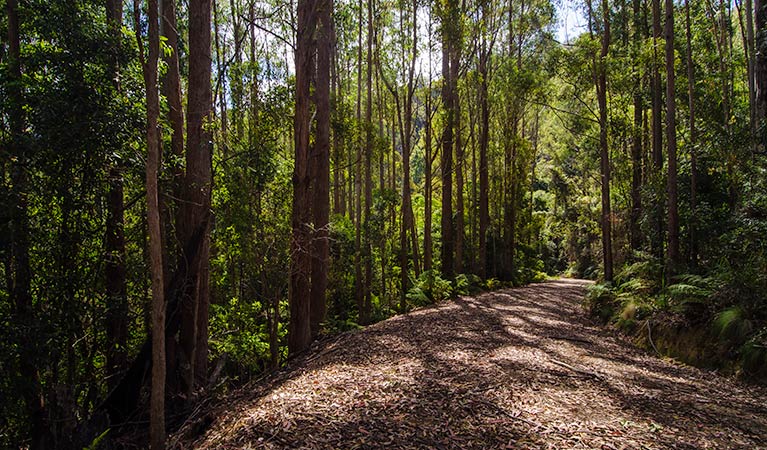
Cottan-Bimbang has a rich past filled with colonial settlers and convicts. The famed explorer John Oxley first travelled through the area in 1818, on his way to the coast. In fact, the first convict road linking Port Macquarie to Walcha went through here; keep an eye out for stonework remnants buried in the undergrowth. Loggers came not long after in their search for cedar, the Red gold. Regular gold was sought here too Cells State Conservation Area, deep in the park, contains relics of early mining. And just to top off a dramatic, event-filled history, the bushranger Jimmy Governer (Jimmy Backsmith) travelled through the area with his brother before being captured closer to Port Macquarie.
- Myrtle Scrub scenic drive Myrtle Scrub scenic drive is a 14km alternative driving route to the highway straight through scenic views of Cottan-Bimbang National Park, tracing a trail past old-growth wet eucalypt forest and rainforest.
The largest population of parma wallabies
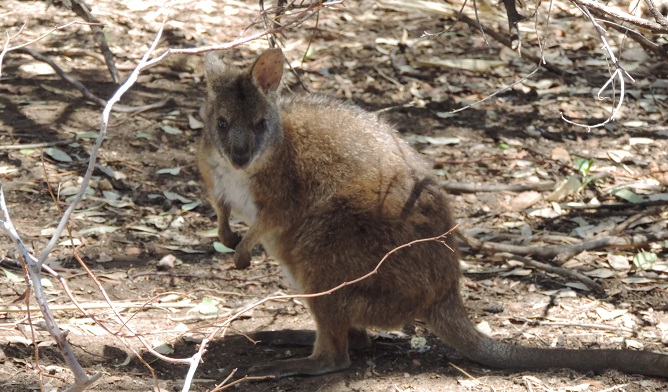
Explore Cottan-Bimbang National Park and you may be fortunate enough to spot the shy parma wallaby in the area. The largest population of parma wallabies reside within Cottan-Bimbang National Park. Approximately half the park is made up of native old-growth forest, making it ideal for a refreshing bushwalk, or just as a means to escape into nature.
- Myrtle Scrub scenic drive Myrtle Scrub scenic drive is a 14km alternative driving route to the highway straight through scenic views of Cottan-Bimbang National Park, tracing a trail past old-growth wet eucalypt forest and rainforest.
Plants and animals protected in this park
Animals
-

Koala (Phascolarctos cinereus)
One of the most renowned Australian animals, the tree-dwelling marsupial koala can be found in gum tree forests and woodlands across eastern NSW, Victoria and Queensland, as well as in isolated regions in South Australia. With a vice-like grip, this perhaps most iconic but endangered Australian animal lives in tall eucalypts within a home range of several hectares.
-

Australian brush turkey (Alectura lathami)
The Australian brush turkey, also known as bush or scrub turkey, can be found in rainforests along eastern NSW. With a striking red head, blue-black plumage and booming call, these distinctive Australian birds are easy to spot while bird watching in several NSW national parks.
-

Superb lyrebird (Menura novaehollandiae)
With a complex mimicking call and an elaborate courtship dance to match, the superb lyrebird is one of the most spectacular Australian animals. A bird watching must-see, the superb lyrebird can be found in rainforests and wet woodlands across eastern NSW and Victoria.
